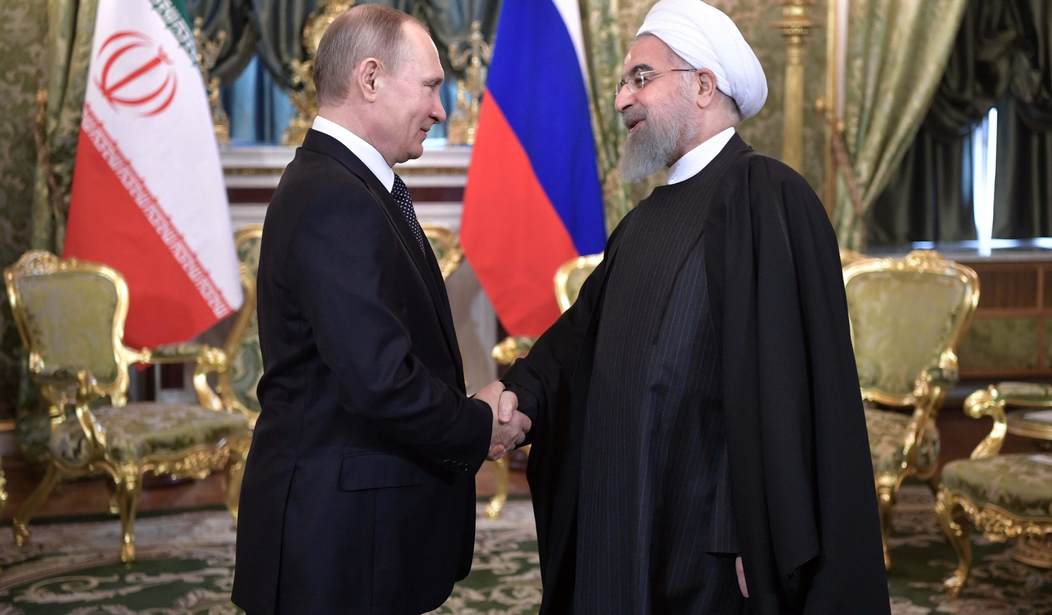WASHINGTON — The Senate affirmed by an overwhelming, veto-proof margin today that they want to maintain and increase punitive sanctions on Moscow, as well as block President Trump from rolling them back without congressional approval, while expanding sanctions against Russia ally Iran.
The final tally on the Countering Iran’s Destabilizing Activities Act of 2017 was 98-2, with Sens. Rand Paul (R-Ky.) and Bernie Sanders (I-Vt.) dissenting. An amendment on Russia sanctions was passed Wednesday, with only Paul and Sen. Mike Lee (R-Utah) voting against it.
“The Russian sanctions amendment included funding for programs and support of policies that I believe are not effective at addressing problems in the U.S.-Russia relationship and have promoted progressive policies unrelated to countering Russia at the expense of American taxpayers,” Lee said.
Sen. Mike Crapo (R-Idaho), sponsor of the Russia amendment, declared Tuesday that “even though unilateral actions are not the best option, America must lead on this issue and encourage others to follow.”
“While it will likely not get the attention and coverage it deserves, Republicans and Democrats took action together today against Russia,” said Sen. Cory Gardner (R-Colo.). “This bipartisan legislation is a strong message to Vladimir Putin: the United States will not stand idly by as you undermine democracy and human rights around the globe.”
Senate Minority Leader Chuck Schumer (D-N.Y.) emphasized that the upper chamber “said to Mr. Putin in no uncertain terms that when he violates international norms and interferes with our election, he will not escape reproach.”
“Not only did we pass a new round of tough sanctions for Russia’s meddling in our election, we codified existing sanctions into law, making them harder to lift, and we moved to make the Congress – not the president – the final arbiter of sanctions relief when necessary,” he said. “Any idea of the president’s that he can lift sanctions on his own for whatever reason are dashed by this legislation.”
White House deputy press secretary Sarah Huckabee Sanders said today the administration is still reviewing the amendment, noting “it needs to go through the House, and we don’t have a final product yet to weigh in.”
Schumer said the House “should take notice that 97 senators voted in favor of this package, and I hope that Leader Ryan will move with haste to pass this package of sanctions through the house — I hope the president will sign it.”
On the core Iran legislation, which includes new sanctions on ballistic missiles, terrorism sanctions on the Islamic Revolutionary Guard Corps and a requirement that the president enforce the arms embargo, sponsor Sen. Bob Menendez (D-N.J.) said the “overwhelming passage of our bipartisan legislation signals to the world that the United States Congress is ready and willing to take clear and decisive action to protect our national security interests here at home and abroad.”
“With the administration yet to articulate a clear vision for America’s leadership around the world, I am proud to have crafted a measure that holds our adversaries accountable for their actions and ensures that Congress exercises its oversight responsibilities regarding our nation’s foreign policy,” he added.
Sen. Sanders said he voted for the Russia amendment because “it is unacceptable for Russia to interfere in our elections here in the United States, or anywhere around the world,” but against new Iran sanctions because he feared they “could endanger the very important nuclear agreement that was signed between the United States, its partners and Iran in 2015.”
“That is not a risk worth taking, particularly at a time of heightened tension between Iran and Saudi Arabia and its allies,” Sanders added. “I think the United States must play a more even-handed role in the Middle East, and find ways to address not only Iran’s activities, but also Saudi Arabia’s decades-long support for radical extremism.”
The Senate voted 100-0 to pass an amendment affirming U.S. commitment to NATO and Article 5, and condemning “any threat to the sovereignty, territorial integrity, freedom, or democracy of any country that is a member of the NATO.”
Sen. Lindsey Graham (R-S.C.) said his amendment and its unanimous passage “should reassure our allies and give notice to our enemies that America stands firmly in support of NATO and our Article 5 commitment.”









Join the conversation as a VIP Member